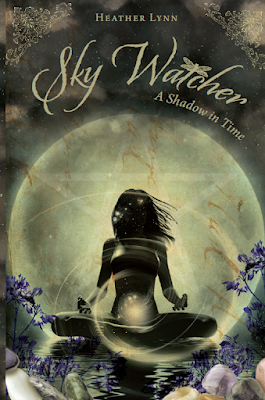Adults Reading YA: Why the Criticism is Flawed and What It Reveals
Yesterday, on Instagram I came across a post - on one of my fellow authors’ account - about this trend of criticizing adults for reading YA books. I have to admit that I was completely oblivious to it, but apparently it has sparked a fair amount of debate in recent years. Personally I found it such an odd behavior that I nearly dismissed it. But after replying “I don’t think there’s much to understand” to Tanya, I started thinking that I actually might be wrong, and there is something here that requires to be studied, analyzed and understood.
I didn’t have much time to think about it thoroughly, with all the variables and elements that might be involved, but I firmly believe that criticizing someone's reading choices is counterproductive. In my opinion reading, in any form, is a valuable activity, and people should do it more often. So, I decided to get it out of my system in an exploratory manner, approaching as many hypotheses as I could think of and this is why this is going to be a long article.
Without further ado, let’s then explore the matter at hand.
So, in the literary world, the genres we choose to read can become unwarranted battlegrounds for judgment. Among these, one trend has emerged: criticism of adults who enjoy Young Adult (YA) literature. But why does this criticism exist, and what does it say about our cultural perceptions of reading? In this article, I will try to explore the concepts of adult and YA genres, delve into the core of this criticism, and examine the profiles of those who perpetuate it. Ultimately, I will argue that such criticism is not only flawed but also warrants serious study.
What Are Adult and YA Genres?
Before diving into the criticism, it’s essential to understand what distinguishes adult literature from YA. The answer is, while both genres offer compelling narratives, they target different audiences and often focus on different themes:
Young Adult Literature:
Intended audience: Readers aged 12 to 18.
Common themes: Identity, coming-of-age, first love, self-discovery, and social justice.
Style: Accessible prose, fast-paced storytelling, and emotional immediacy.
Adult Literature:
Intended audience: Readers aged 18 and above.
Common themes: Existentialism, moral ambiguity, professional and personal crises, and nuanced relationships.
Style: Can vary from straightforward to complex, often with a heavier emphasis on literary techniques.
It’s also worth noting that these distinctions are not rigid. Many YA books tackle sophisticated themes, while some adult books are lighthearted and straightforward. Literature is inherently fluid, crossing boundaries and resonating with readers of all ages.
At the Heart of the Criticism
Criticism of adults reading YA often stems from dismissive attitudes about the genre. Here are some recurring arguments and why they fall short:
- "YA is for kids."
Flaw: While YA books are marketed toward teens, their themes are universal. Stories about identity, resilience, and love resonate with readers across generations. Isn’t the mark of great literature its ability to connect with a broad audience?
- "YA is not intellectually challenging."
Flaw: This argument dismisses the complexity of many YA books. Works like The Hate U Give by Angie Thomas or A Monster Calls by Patrick Ness tackle systemic racism, grief, and moral dilemmas with depth and sensitivity.
- "Adults reading YA are immature."
Flaw: Reading preferences have no bearing on maturity. This criticism reflects a narrow view of personal growth, ignoring the fact that many adults find confort, joy, and meaning in YA literature.
Profiling the Critics: Who Are They?
Understanding the profiles of those who criticize adults reading YA can help contextualize their motivations. Here are some of the potential groups and their underlying reasons:
- Gatekeepers of "High Art":
These are often individuals with a strong academic background in literature; they may view YA as lacking literary merit compared to "serious" works. This is a perspective rooted in elitism and rigid definitions of value.
- Adolescents or Young Adults:
Teens or early 20-somethings might criticize adults for reading YA to protect the genre as "theirs." This reflects a desire for identity and ownership rather than a critique of the genre itself.
- Internalized Societal Norms:
Adults adhering to societal expectations may unconsciously criticize others for defying "age-appropriate" norms. And you can find this sort of behavior in many social interactions, but this only reflects a broader cultural pressure rather than genuine literary critique.
- Gender Bias:
YA literature, dominated by female authors and protagonists, may be devalued due to ingrained biases against works associated with women. This mirrors similar dynamics in other art forms, such as romance novels.
Why This Criticism Deserves Serious Study
The phenomenon of criticizing adults for reading YA highlights larger societal issues:
- Ageism: Our culture often enforces arbitrary rules about what is "appropriate" for certain age groups.
- Gender Bias: Devaluing YA reflects broader patterns of dismissing female-dominated spaces.
- Gatekeeping in Art: Literature should be a space for exploration and enjoyment, not judgment.
Studying this behavior could reveal insights into how cultural norms influence reading habits and the perpetuation of elitism in art.
In conclusion, reading is deeply personal, offering an escape, a challenge, or simply joy. YA literature—with its vibrant characters and poignant themes—can enrich lives at any age. Criticizing adults for their literary choices is not only narrow-minded but also dismissive of the transformative power of stories. Rather than gatekeeping, we should celebrate the diversity of literature and the freedom to find meaning where we choose.
So in the spirit of fostering and encouraging inclusivity, it would be wise to leave behind the notion that books have age limits and actually embrace the universality of great storytelling.



Comments
Post a Comment